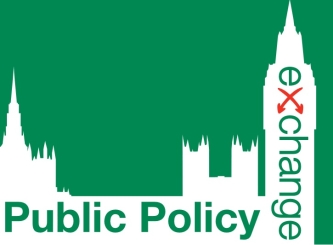Energy poverty, described as the inability to afford an adequate heating regime in the household, is increasingly acknowledged as a pressing issue across Europe. The European Commission states that over 54 million people, or 11% of the European population, currently suffer from the consequences of energy poverty, the causes of which are multiple. Despite falling wholesale prices for gas and electricity, consumer costs have gradually increased. When combined with poor energy efficiency in many buildings and a squeeze in living standards, Europe’s citizenry has been left in the dark. Not only is tackling the issue of energy poverty now a moral societal imperative, it also plays a prominent role in Europe’s response to climate change, a secure energy union and the circular economy.
In February 2015, the European Commission published a communication on the Energy Union package “A Framework Strategy for a Resilient Energy Union with a Forward-Looking Climate Change Policy”. One of the main targets of this strategy is providing consumers with secure, sustainable and affordable energy. Cross-institutional calls for an official definition of energy poverty, along with the establishment of an energy-poverty observatory, are just two parts of a package of measures announced in November 2016. Additional proposals include financial support for national implementation, reducing the number of customer disconnections, and minimum standards for energy efficient buildings. With 2017 dubbed by the Commission as the ‘year of implementation’, European Member States must collaborate and harmonise their approaches, to ensure that citizens have consistent access to clean and affordable energy.
Despite these efforts, Europe continues to struggle with data collection, increased import dependency, limited diversification, and volatile energy prices. Growing demand, coupled with security risks in transit countries, the growing threats of climate change, and slow progress in energy market liberalisation, bring additional challenges. Brexit has also opened up further complications for the energy industry in an already complex and challenging political climate. With many member states opting for a short-term fix over longer-term solutions, the time has come for key stakeholders to initiate a clear and constructive dialogue to ensure that the lights stay on.
This timely symposium provides an invaluable opportunity to discuss the latest developments in tackling energy poverty at the European level. This symposium will explore the importance of reaching a common European strategy on energy poverty and discuss suitable pathways to balance energy market liberalisation and consumer protection. The symposium will also address the question of energy efficient building renovation, a key element of the fight against climate change. Public Policy Exchange supports the exchange of dialogue and ideas, welcoming delegates to engage in thought-provoking and topical debate.
Delegates Will
- Examine the current progress made towards a common strategy to eliminate energy poverty in Europe
- Explore possible innovative solutions and mechanisms for businesses to limit GHG emissions through energy efficiency measures and building renovation.
- Gain knowledge and insights on the future Clean Energy Package and the state of the Energy Union
- Discuss the impact of Brexit on the Future of the Energy Union and examine possible pathways for future cross-border collaboration
- Establish clear links between the implementation of EU Directives in the energy sector and the impact on businesses, consumers and the construction industry
- Define ways to support national strategies via EU funding in order to foster energy market liberalisation
- Promote inclusive measures to empower citizens and protect vulnerable consumers
- Take part in lively and interactive discussions with key stakeholders in the field of energy policy and build lasting partnerships
Register here: https://www.publicpolicyexchange.co.uk/event.php?evID=2648
When
5 Sep 2017 @ 10:00 am
5 Jul 2017 @ 04:30 pm
Duration: 61 days, 17 hours
Where
Thon Hotel Brussels City Centre
Avenue du Boulevard 17
Belgium
Language
English en
